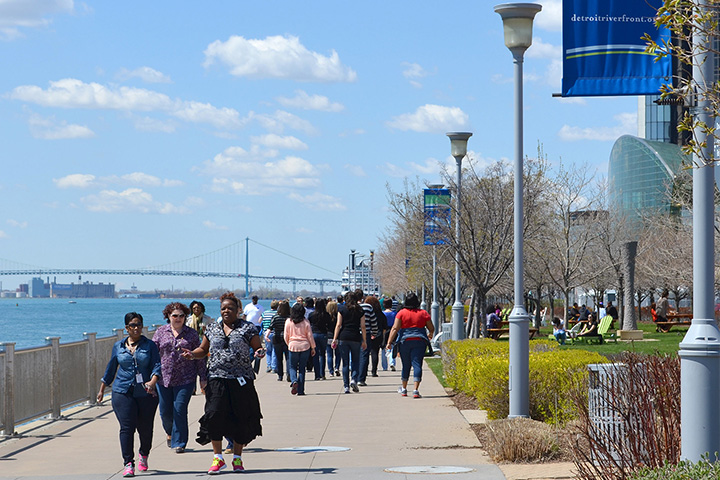Centering Racial Justice in Urban Flood Adaptation
Centering Racial Justice in Urban Flood Adaptation
Centering Racial Justice in Urban Flood Adaptation
Program: Catalyst Grants
Program details » | All Catalyst Grants projects »

Photo credit: A Healthier Michigan
“A lot of urban sustainability work involves meetings, stakeholder roundtables, trainings, and we envisioned the one-pagers as things that could be brought to those meetings as references and conversation starters.”
Project Team
Sara Hughes - U-M School for Environment and Sustainability (SEAS) (PI)
Richard Norton - U-M Taubman College of Architecture and Urban Planning (TCAUP)
Sarah Dobie - U-M TCAUP
Kirsten Schwartz - UCLA Luskin
Kelly Turner - UCLA Luskin
Joyce Coffee - Climate Resilience Consulting
Madeleine Lane - U-M SEAS
Project Summary
Cities nationwide are developing broad, ambitious plans to adapt to climate change, and a growing number have begun to recognize the particular vulnerabilities of low-income and racialized groups. But incorporating justice and equity into their adaptation planning—though critically important—is a challenge: The guidelines, frameworks, and metrics needed for a justice-centered approach are not readily available to practitioners.
To support communities and decision-makers committed to centering racial justice in urban adaptation, this team worked collaboratively with stakeholders to develop an integrated set of decision-making tools and resources available on the Centering Racial Justice In Urban Flood Adaptation project website.
The tools focus on the issue of urban flooding. Racial and spatial segregation in cities generate uneven exposure to current and future urban flood risks and worsen the economic and health consequences of flooding for BIPOC communities. Failing to center racial justice in urban adaptation not only neglects those communities most affected by climate change, but can also produce decisions and investments that exacerbate current inequalities.
Learn more on the project website: Centering Racial Justice in Urban Flood Adaptation: Planning and Evaluation Tools for Decision Makers and Stakeholders
Resources
- PI Perspectives Interview: Sara Hughes Graham Sustainability Institute February 10, 2022
This project received a $10,000 Catalyst Grant in 2020.